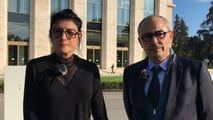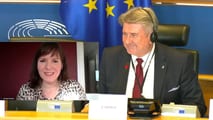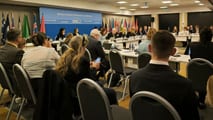
In Algeria, restrictions on the freedom of peaceful assembly and association deprive Algerian Christians of freely exercising their faith. Without the possibility for evangelical churches to form religious associations or have their places of worship recognized, every religious gathering becomes prohibited. The vice-president of the Protestant Church of Algeria has recently experienced this firsthand, awaiting the verdict of his trial on March 26, 2023.
Pastor Youssef Ourahmane, vice-president of the Protestant Church of Algeria, will defend himself in court for a second appeal on Tuesday, March 26 2024. He was convicted in September and November 2023 for conducting an unauthorized worship service in an unapproved building, facing a potential one-year prison sentence. In March 2023, he supervised some Christian families on vacation in a parish complex that housed a chapel closed by the authorities.
Currently, Algerian Christians face legal uncertainty deliberately perpetuated by the authorities, a situation already denounced by the European Centre for Law and Justice. Through the 2006 ordinance, Algeria acknowledges, albeit indirectly, the Christian worship. However, the ordinance tightly regulates the practice of "religions other than Islam" (Article 1) while ensuring "the free exercise of worship" within the bounds of "public order" and "good morals," while reiterating the primacy of Islam as the state religion (Article 2).
The lack of recognition of Christian places of worship
In reality, this ordinance primarily aims to restrict conversions to Christianity, which have been increasing since the early 2000s. It imposes severe penalties for proselytism (Article 11) and provides a highly restrictive legislative framework for non-Muslim worship, particularly concerning the recognition of places of worship (Articles 5 and 7).
As a result, Algerian Christians are forced to either construct churches without formal authorization, which is often delayed, or use private buildings with permission but intended for other purposes. In both cases, the authorities systematically close down these churches one after another. Even when associations address safety issues identified by the authorities, they receive no response to their registration requests. This issue was brought to the attention of the Special Rapporteur on the rights to freedom of peaceful assembly and of association, Clement Nyaletsossi Voule, during his visit to Algeria in September 2023.
Churches facing administrative silence
In addition to the requirement for the recognition of places of worship, the 2006 ordinance also mandates the recognition of religious associations, detailed in the 2012 law on associations. All regularly established associations were compelled to re-register to comply with the more stringent new provisions, contrary to UN recommendations (Report A/64/226 of August 4, 2009, §108).
Algerian authorities can arbitrarily refuse the registration of associations if they deem their objectives and purposes "contrary to national constants and values, public order, good morals, and the provisions of laws and regulations in force" (Article 2), criteria that are extremely vague and imprecise, allowing for abuse. The administration may deliberately remain silent to prolong or even bury the approval process (Article 11).
The restrictions on the freedom of peaceful assembly and association deprive Algerian Christians of the ability to freely exercise their faith. Without the possibility for evangelical churches to form religious associations or have their places of worship recognized, every religious gathering becomes prohibited. Not only do Algerian authorities close and seal church buildings, but they also pursue leaders if their communities continue to assemble.
Algerian laws are a façade. While they provide a legal framework that could be satisfactory, their abusive application violates the freedom of association and assembly of Algerian Christians and ultimately their freedom of religion. Algeria must therefore uphold its international commitments and align with Article 20 of the Universal Declaration of Human Rights and Article 22 of the International Covenant on Civil and Political Rights. Algerian Christians pose no threat to national unity and peace, let alone any terrorist or extremist threat.













